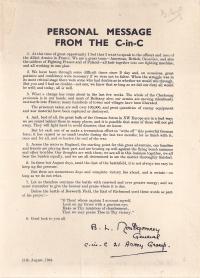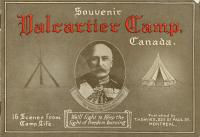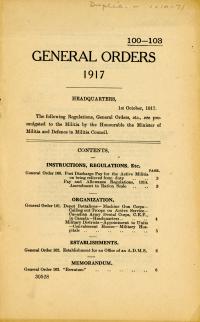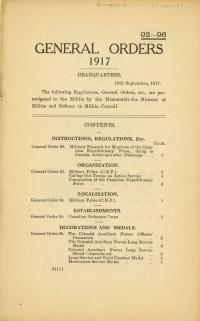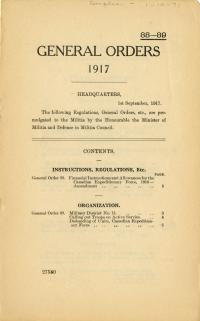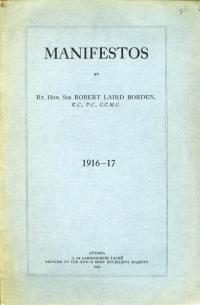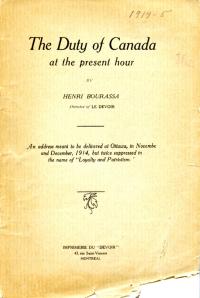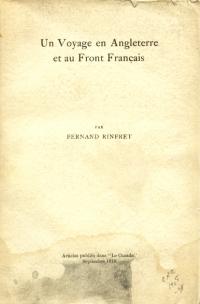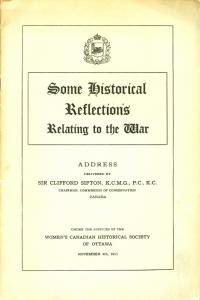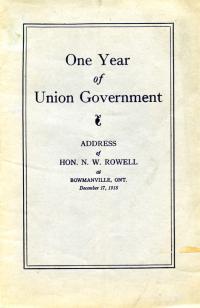Fighting
The offensive moves through north-west Europe
These messages were conveyed to Canadian units before and after the breakout from the Normandy beach head and the move east into Belgium, before the crossing of the Rhine River, and at the defeat of Germany.
A souvenir of Valcartier
The first contingent of the Canadian Expeditionary Force came together at Valcartier, Quebec, in September 1914 - and enterprising entrepreneurs were quick to produce souvenirs to sell to a willing public.
Militia General Orders, 1917
General Orders, promulgated to Canada's Non-Permanent Active Militia by the Minister of Militia in Militia Council, addressed a range of administrative and functional matters. This one covered minor changes to regulations regarding pay, rations, depot battalions, medical services, and other organizational issues.
Militia General Orders, 1917
General Orders, promulgated to Canada's Non-Permanent Active Militia by the Minister of Militia in Militia Council, addressed a range of administrative and functional matters. This one covered military funerals, the Military Police, the Canadian Ordnance Corps, and decorations and medals.
Militia General Orders, 1917
General Orders, promulgated to Canada's Non-Permanent Active Militia by the Minister of Militia in Militia Council, addressed a range of administrative and functional matters. This one covered financial instructions and allowances, the Reserve of Officers, the Fort Garry Horse, and the disbanding of certain CEF battalions.
The war according to Borden
This pamphlet collected some of Prime Minister Borden's statements on conscription, the Union Government, and what Canada must do to win the war.
Henri Bourassa and the war
His opponents twice prevented newspaper editor Henri Bourassa from giving this speech, in which he argued that the duty of Canadians was to stay clear of involvement in the First World War, so he elected to publish it as a booklet instead.
A journalist's impressions
Journalist Fernand Rinfret, later a member of parliament and mayor of Montreal, took part in a press junket to Britain and France in 1918, and wrote about his impressions of the war zones in an Ottawa newspaper, "Le Canada."
Freedom or despotism?
In this wide-ranging speech, Sifton, the chairman of Canada's Commission of Conservation, placed the First World War in the context of the long struggle for freedom that went back to Demosthenes, the Everlasting League, Magna Carta, and England's Glorious Revolution.
The Union Government in power
A year after the 1917 election, Newton Rowell, president of the Privy Council in the Union Government, surveyed its achievements, including the institution of conscription, and applauded the Liberals (like himself) who went over to the Union side.

